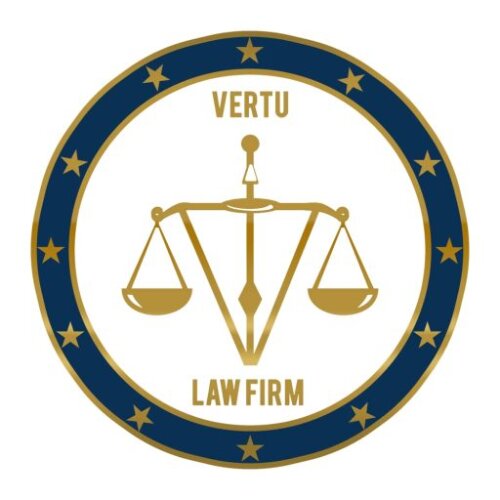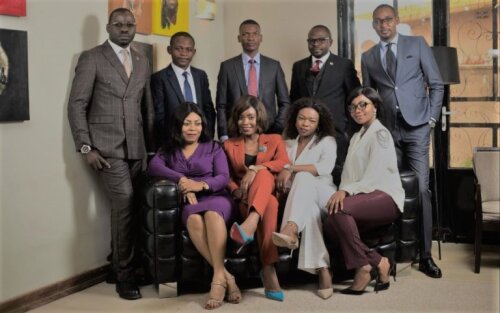Best Antitrust Lawyers in Lubumbashi
Share your needs with us, get contacted by law firms.
Free. Takes 2 min.
List of the best lawyers in Lubumbashi, DR Congo
About Antitrust Law in Lubumbashi, DR Congo
Antitrust law in Lubumbashi, DR Congo is administered under the scope of the Competition Regulatory Authority, which was created by the Congolese competition law passed in 2012. The purpose of antitrust law, otherwise known as competition law, is to maintain market competitiveness by preventing companies from creating monopolies, price-fixing, or any other activities that can limit competition.
Why You May Need a Lawyer
Legal advice in the realm of Antitrust may be necessary in various instances. Some of these include establishing a new business, reconfiguring an existing business, acquisitions, mergers, or if your business is investigated for potential antitrust violations. In instances of suspected unethical business conduct or unfair competition, comprehensive legal knowledge would be necessary to protect your interests or defend your actions. As Antitrust law in DR Congo can be complex and intricate, it becomes crucial to have professional legal aid to navigate these waters.
Local Laws Overview
The Democratic Republic of Congo's competition law, passed in 2012, consists of two main legal instruments: one on competition, the other on pricing. These regulations aim to ensure fair competition by prohibiting business practices that can stifle competition, such as cartels, abuse of dominant position, and certain restrictive practices. The law also covers issues of concentration, requiring companies to notify the Competition Regulatory Authority of any mergers or acquisitions.
Frequently Asked Questions
1. How is antitrust law enforced in Lubumbashi, DR Congo?
The Competition Regulatory Authority enforces antitrust law, which can carry out investigations, impose fines, and order other preventative measures.
2. What constitutes a violation of antitrust law in DR Congo?
Actions like creating a monopoly, price-fixing, collusion, or other activities that limit competition are considered antitrust violations.
3. What remedies exist for antitrust violations?
The offending companies can face fines, restructuring orders, or may be required to stop their anti-competitive practices.
4. Can I file a complaint if I suspect an antitrust violation?
Yes, the Competition Regulatory Authority accepts and investigates complaints of anti-competitive practices.
5. What should I do if my business is being investigated for potential antitrust violations?
You should immediately seek legal counsel to guide you through the investigative process and protect your interests.
6. What are some common anti-competitive business practices?
Market monopolization, formation of cartels, anti-competitive contracts, and predatory pricing to force competitors out of the market are common anti-competitive practices.
7. How can a lawyer help me if my business is accused of antitrust violations?
A lawyer can help by reviewing the evidence against your business, guiding you through the complex legal procedures, and representing your interests before the regulatory authority.
8. How can I ensure my business activities comply with antitrust law?
Regular consultations with a lawyer experienced in competition law can ensure your business stays compliant.
9. Are import and export activities subject to antitrust law in DR Congo?
Yes, any anti-competitive activities that affect the Congolese market, including foreign companies' conduct, are subject to the country’s antitrust law.
10. What are the consequences if a merger or acquisition is completed without approval from the Competition Regulatory Authority?
It could result in a fine or an order to reverse the transaction.
Additional Resources
The Competition Regulatory Authority of DR Congo is a prime resource for understanding the competition law, lodging complaints, and keeping updated on legal changes. Besides this, global organizations like the International Competition Network (ICN) and the OECD Competition Division provide valuable resources.
Next Steps
If you need legal assistance in Antitrust, the first step would be to consult with a lawyer specializing in competition law. Your legal counsel can provide guidance tailored to your particular situation, ensuring that you understand your rights, obligations, and the legal options available to you. It is recommended to maintain regular communication with your lawyer to make sure all your business activities comply with the country's antitrust laws.
Lawzana helps you find the best lawyers and law firms in Lubumbashi through a curated and pre-screened list of qualified legal professionals. Our platform offers rankings and detailed profiles of attorneys and law firms, allowing you to compare based on practice areas, including Antitrust, experience, and client feedback.
Each profile includes a description of the firm's areas of practice, client reviews, team members and partners, year of establishment, spoken languages, office locations, contact information, social media presence, and any published articles or resources. Most firms on our platform speak English and are experienced in both local and international legal matters.
Get a quote from top-rated law firms in Lubumbashi, DR Congo — quickly, securely, and without unnecessary hassle.
Disclaimer:
The information provided on this page is for general informational purposes only and does not constitute legal advice. While we strive to ensure the accuracy and relevance of the content, legal information may change over time, and interpretations of the law can vary. You should always consult with a qualified legal professional for advice specific to your situation.
We disclaim all liability for actions taken or not taken based on the content of this page. If you believe any information is incorrect or outdated, please contact us, and we will review and update it where appropriate.











